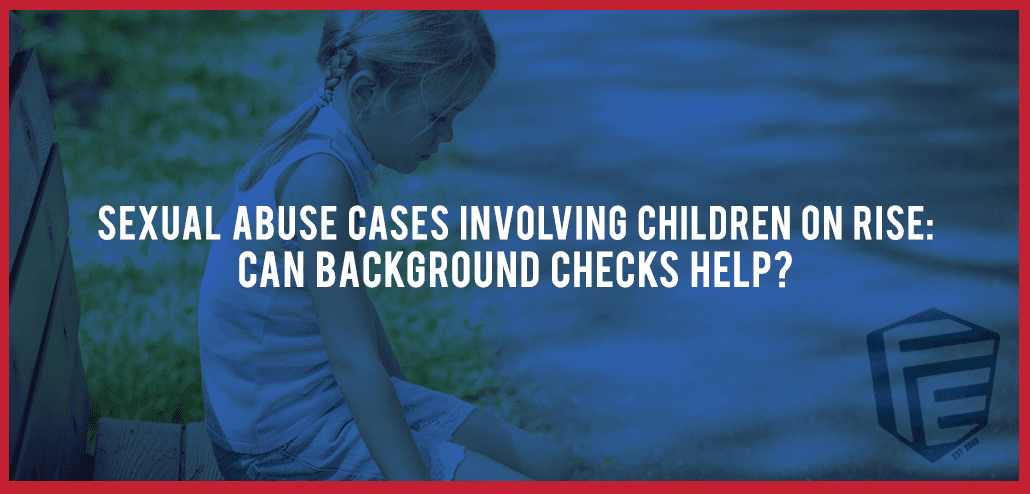Last month, the U.S. Youth Soccer Association (along with its California affiliate) settled a lawsuit to the tune of $8.2 million dollars for failing to run background checks on their volunteer coaches—a decision that led to the molestation of a 13-year-old girl by a coach. Had a background check been run, the organization would have known that this coach had a past criminal history, including domestic violence and battery against his spouse, which would have disqualified him from preying on innocent young victims. The American Youth Soccer Organization has also been dealing with multiple lawsuits related to sexual abuse by coaches who haven’t been properly vetted.
Sadly, these types of incidents are not isolated to one or two organizations with careless background checking policies. High-profile cases involving USA Gymnastics and other sports on the national level have made front page news as parents and concerned citizens wonder why these disturbing acts seem to be occurring with greater frequency.
While federal law has mandated that states begin conducting criminal background checks on all regulated, licensed, license-exempt, and registered child care providers, and states require school employees undergo background checks during the employment process, there are gaping holes in the regulation of other youth-based organizations regarding how they screen staff members or volunteers. Like the soccer organizations mentioned above, many do not require background checks, and the result has been devastating for too many children.
Keeping Children in Nevada Safe with Due Diligence and Required Background Checks
On any given day, we hand our children off to various adults—whether it be at school, camp, childcare, or a sport or other extracurricular activity—and the truth is that in some instances we have no idea if these adults are trustworthy. There is a false sense of security created when teachers have to pass rigorous background checks and extracurricular coaches are not.
As a diligent parent or caregiver, it is worth checking out the personnel and volunteer protocol for any organization you or your child are interested in. Here are some questions to ask before signing your child up for any type of program:
- Are your staff members and volunteers (if applicable) required to undergo a fingerprint background check?
- If the answer to question one is “no,” do you run each person’s name through the sex offender registry in each and every state that person has resided?
- Do you provide mandatory training courses for all adults who will come into contact with children?
- Do you have policies in place on reporting suspicious or inappropriate behavior by staff members or volunteers?
- Are children permitted to be alone with volunteers or staff members at any time?
With answers to these questions, you can make an informed decision on whether it is a safe environment for your child to be in. Also, set aside some time to observe the staff and how they interact with children ahead of time. If you see any interactions or behavior that you are uncomfortable with, follow your intuition and move on to another program.
One of the single most effective ways to screen staff is through comprehensive criminal background checks, including fingerprinting. Fingerprint background checks can tap into the FBI’s Next Generation Information System (NGI) for the most accurate, comprehensive results on the criminal history of an individual, regardless of where in the U.S. crimes were committed.
Some organizations opt for name-based background checks, which can result in incomplete information and can be inaccurate if the applicant isn’t truthful with the information he or she provides.
Are Criminal Background Checks Enough?
If you watch the news, you are probably keenly aware of the numerous stories involving school personnel abusing children. But wait, aren’t educators and school employees fingerprinted and background checked? The answer is yes; however, school employee abuse has been far too common not only here in Nevada but across the U.S. Many experts feel that it is due in part to a rise in the use of smartphones and social media. Here are some shocking statistics to consider:
An organization called Stop Educator Sexual Abuse Misconduct & Exploitation (SESAME), which defines itself as a national voice to prevent the abuse of children by educators and school employees, has compiled some alarming data indicating that sexual abuse by educators is on the rise. They report that almost five hundred educators were arrested in 2015 alone.
The Department of Justice states that one in every ten children will experience school employee sexual misconduct of some kind, whether it is by being touched or spoken to inappropriately, exposed to sexually explicit language or pornographic materials, or witness to exhibitionism.
According to a Washington Post story in 2015, 35% of educators accused or convicted of sexual misconduct have leveraged social media to get access to their victims.
So what does this mean? It means that comprehensive fingerprint-based background checks should be coupled with protective, aggressive policies designed to limit an employee’s exposure to a child—especially one-on-one. Additionally, staff should be adequately trained to spot possible signs of abuse or inappropriate relationships in others and have safe, reliable channels for reporting possible abuse. Administrators need to be held accountable for following up.
Signs of Sexual Abuse to Look for in Your Child
If you think your child has experienced sexual abuse of some kind, there are some warning signs to watch for. The Children’s Center for Psychiatry, Psychology, & Related Services outlines several general indicators, including:
- Unexplainable sleeping problems/nightmares
- Lack of appetite, difficulty swallowing, or refusal to eat
- Sudden withdrawal, mood swings, or insecurity
- A new or strange fear of a specific place or person
- Familiarity with adult language or sexual behaviors
- Talking about, drawing, writing about, or dreaming about sexual acts
- Feeling “dirty” or “bad”
- Avoids touching or hugging
In teens, other behaviors like drug/alcohol abuse, sexual promiscuity, depression, anxiety, or suicide attempts can manifest.
If your child opens up to you about abuse that has occurred, listen calmly and notify your local law enforcement agency. You can also contact a child advocacy organization like ChildHelp or the National Children’s Alliance for additional support and resources for your child.
Advocating for the Safety of Children
The vast majority of kids who are sexually abused are betrayed by someone they know and trust—a family friend, coach, teacher, or mentor. You can help by working with others in your community to encourage organizations who provide services for children to require fingerprint criminal background checks for all volunteers and employees.
Also, consider contacting your local lawmakers to put strong policies in place to help safeguard against sexual abuse involving children in Nevada. These actions, coupled with comprehensive background checks, can go a long way to filtering out predators before they have the chance to come into contact with innocent youth.
Fingerprinting Express is dedicated to protecting Nevada’s children. We assist organizations by offering the most accurate fingerprint criminal background checks in Nevada available using Livescan technology. Contact us a call to find out how we can help your organization protect the children you serve and avoid legal issues.
Other Articles to Read:
School Background Check Policy Has Some Parents Angry & Others Relieved






















